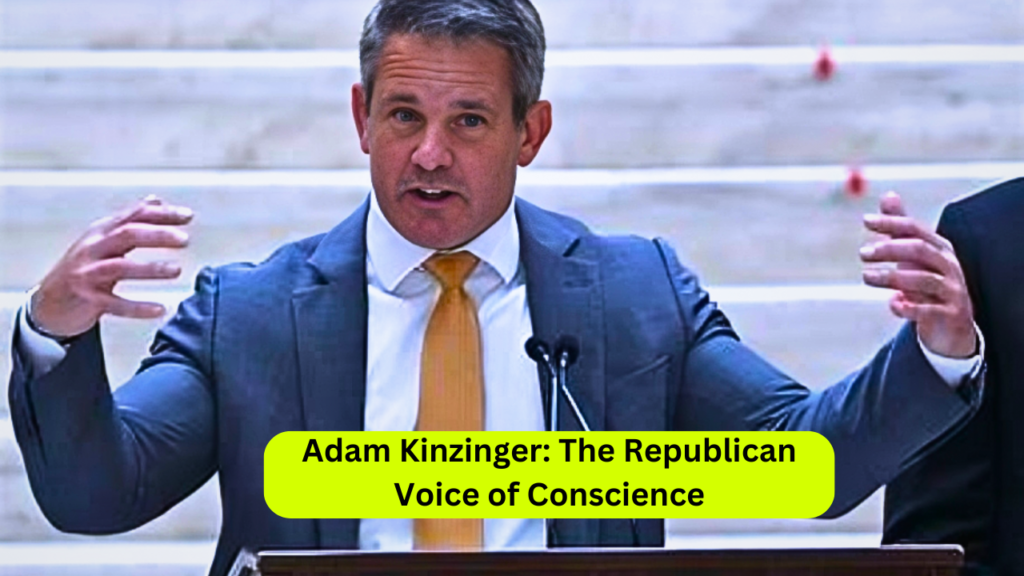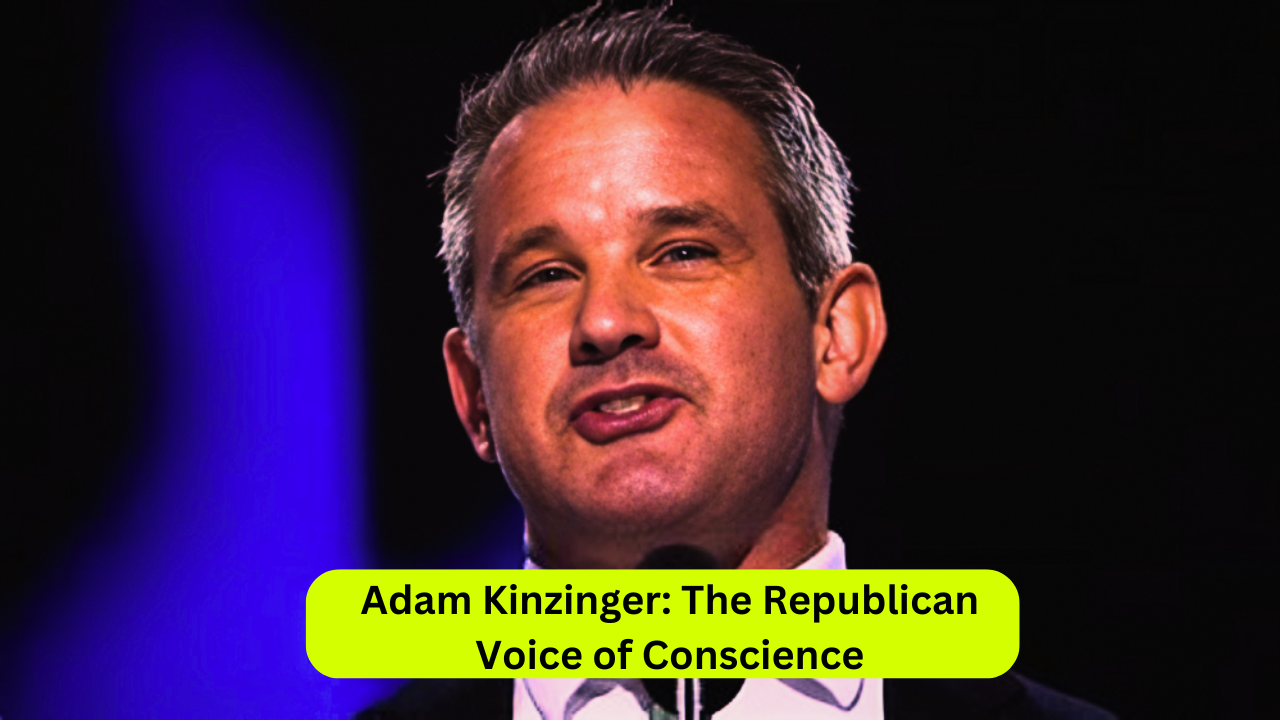Introduction
Adam Kinzinger, a name synonymous with integrity and courage in American politics, has emerged as a prominent figure in recent years, particularly within the Republican Party. Known for his outspoken stance on key issues and his willingness to challenge party orthodoxy, Kinzinger has become a symbol of a different kind of conservatism—one that prioritizes principles over partisanship. This article delves into the life, career, and influence of Adam Kinzinger, highlighting why he continues to be a significant player in the political landscape.
Early Life and Military Service
Born on February 27, 1978, in Kankakee, Illinois, Adam Kinzinger was raised in a family with deep-rooted values of public service. His upbringing in a religious household influenced his early views on morality and duty. After graduating from Illinois State University in 2000, Kinzinger joined the U.S. Air Force, where he served as a pilot. His military career, which included tours in Iraq and Afghanistan, not only instilled in him a strong sense of discipline but also a deep understanding of global conflicts and the importance of American leadership on the world stage.
Political Career
Kinzinger’s foray into politics began in 2010 when he was elected to represent Illinois’ 11th Congressional District in the U.S. House of Representatives. A member of the Republican Party, he quickly established himself as a rising star, known for his hawkish foreign policy views and strong support for the military. His early years in Congress were marked by a focus on national security, veterans’ affairs, and economic growth.

However, it was during the Trump administration that Kinzinger’s profile began to rise significantly. While many Republicans aligned themselves with President Donald Trump, Kinzinger often found himself at odds with the administration, particularly on issues related to foreign policy and the rule of law. His willingness to speak out against Trump and his supporters, particularly in the aftermath of the 2020 election, set him apart from many of his colleagues.
A Stand Against Trumpism
Adam Kinzinger’s most defining moment came after the January 6, 2021, Capitol riot. Unlike many in his party who either downplayed the events of that day or outright supported the baseless claims of election fraud, Kinzinger was one of the few Republicans who unequivocally condemned the attack on democracy. He was one of only ten Republicans in the House to vote in favor of impeaching President Trump, a decision that earned him both praise and criticism from across the political spectrum.
Kinzinger’s stance against Trumpism did not end with the impeachment vote. He went on to co-found the “Country First” movement, an organization aimed at restoring integrity and principle to the Republican Party. The movement, which advocates for a return to traditional conservative values, has attracted a diverse group of supporters who are disillusioned with the current direction of the GOP.
Challenges and Criticisms
While Adam Kinzinger has garnered respect for his principled stance, his actions have not been without consequence. He has faced significant backlash from within his own party, including censure from the Illinois Republican Party and backlash from Trump supporters. Despite these challenges, Kinzinger has remained steadfast in his beliefs, even announcing his decision not to seek re-election in 2022, a move that many interpreted as a signal of his dissatisfaction with the current state of the Republican Party.
Legacy and Influence
As Adam Kinzinger steps away from Congress, his legacy as a voice of conscience within the Republican Party is undeniable. His willingness to challenge the status quo and prioritize the country over party has earned him a place in the annals of American political history. Kinzinger’s story is a reminder that true leadership often involves taking difficult stands, even when it comes at a personal or political cost.
Conclusion
Adam Kinzinger may no longer hold public office, but his influence on American politics is likely to endure. As the Republican Party continues to grapple with its identity in the post-Trump era, Kinzinger’s calls for integrity and principle will remain relevant. Whether or not his vision for the GOP becomes reality, his contributions to the national discourse will continue to inspire those who believe in the importance of standing up for what is right, even when it is not easy.
